#Mission Imposible: Fallout
Explore tagged Tumblr posts
Text

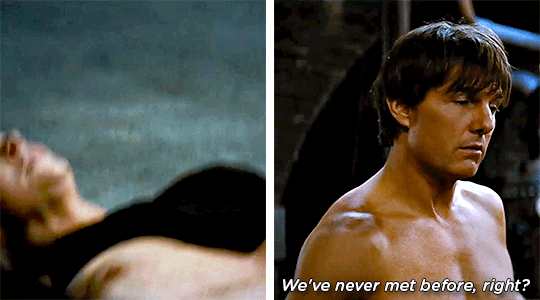





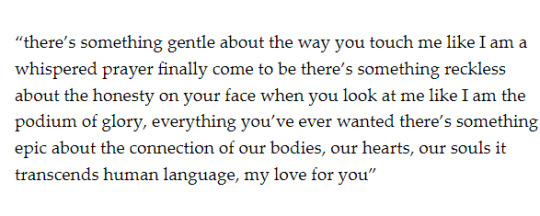
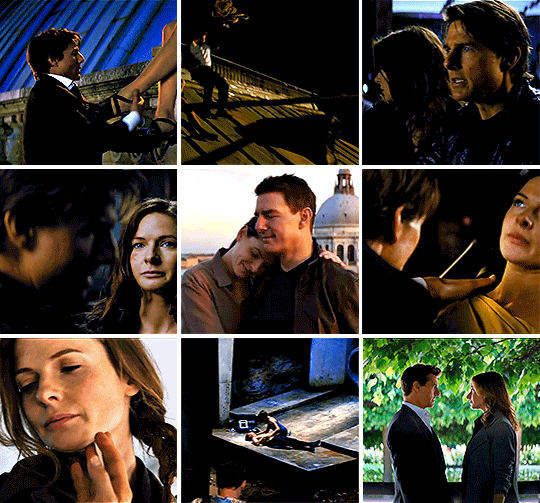

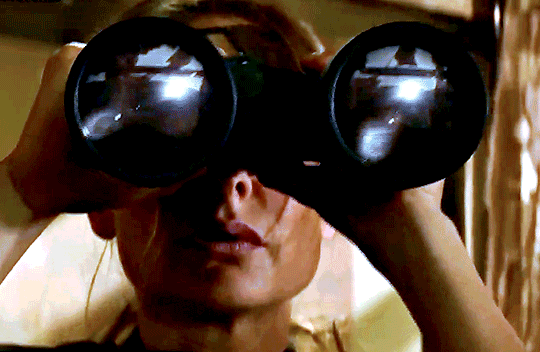


whatever our souls are made of, his and mine are the same.
Kate Bush / Mission Impossible: Rogue Nation / Friedrich Nietzsche / Mission Impossible: Fallout (Deleted Scene) / Taylor Swift / Angelica Alzona / tumblr / kiss on my neck says it all by Abby S / Mission Impossible: Rogue Nation /Mission Impossible: Fallout / Rebecca Ferguson in an interview / Mission Impossible: Dead Reckoning Part One / Madeline Miller / Mission Impossible: Dead Reckoning Part One
#mision imposible#mission: impossible#ilsa faust#ethan hunt#ilsaethan#rebecca ferguson#tom cruise#otpsource#romancegifs#*mine#rogue nation#fallout#dead reckoning part one#the inherent connection!!! the soulmateism!!!!#they are literally connected !!!#ty for listening to my ted talk#also pls excuse the fuckass watermark lmaoo#soulmateism#soulmates#missionedit#missionimpossibledit
312 notes
·
View notes
Text
Soo... Ethan and Benji.. yeah? Also, this scene is from a fic made by @spookybeez, I just absolutely love it, and you guys should read it too (twice if you allready read it) I only wish I didn't fuck it up with colors

Here's the link:
#my art#benji dunn#ethan hunt#benji x ethan#ethan x benji#benthan#mission imposible#mission impossible fallout#mission imposible:ghost protocol#mission impossible 7
67 notes
·
View notes
Text



cant believe they cut Luther being cool scene smh
#cant believe they cut this silly lil scene of luther beating benji and walker pretending to be a fucking casual#the movie is like super long already but still#let this man have some screentime#mission impossible#mission imposible fallout#luther stickell#benji dunn#ethan hunt#august walker#mi6#benjiluther#mi5 gang
44 notes
·
View notes
Photo

Let me just assure you, this won’t hurt enough.
#mini pause of the oc tournament cause i have watched again fallout and i love benji#anyways. i love how bitter he sounds talking to lane i love that you can see the unfinished business line affects him#and i love that ilsa and him kick lane's ass#95% ilsa actually but still#en fin#sentimientos#mission: impossible#mission imposible#mission: impossible - fallout#benji dunn#solomon lane#lanedunn
52 notes
·
View notes
Note
It always strikes me as weird that there’s no point at which the Brotherhood and Minutemen automatically come into conflict that I can find. One would think that the Brotherhood’s methods of gathering supplies (basically racketeering) would automatically lead to issues with the Minutemen, whose job is to defend against such raiders. I know the game mechanics reason for this, but can you think of anything in-universe to explain it?
I think there are a few things going on here – some gameplay related, some thematically related. But to be honest I don't think it's always easy to separate those two things.
Point one - who's in charge?
If you follow Fallout 4's opening quests then you are the General of the Minutemen. That means that your Sole Survivor gets to make big important decisions like "do we go to war with this new group?" You do not lead the Brotherhood, Railroad or Institute (you may, of course, inherit control of the Institute at the end of the game, but that's after all these decisions take place) and consequently decisions about who your enemies are take place over your head. You can pick a side if two factions you belong to come into conflict ... but you can't ultimately change their politics.
There is no point in the story where you are forced to go to war with the Brotherhood as the General of the Minutemen ... but you absolutely can go to war with the Brotherhood as the General of the Minutemen.
So this is both a gameplay and narrative point: what does your Sole Survivor think of the Brotherhood of Steel? Maybe they are also a dedicated member of the Brotherhood, and have no problem with them "commandeering" supplies. Maybe you work with the Railroad, and their attitudes frighten you. Maybe you're a pure Minuteman character and just resent another group of raiders causing problems for your settlements.
Every other faction makes the decision of when to invoke "War never changes" for you. This one's on you.
Point two – who shot first?
Obviously, the Brotherhood of Steel does end up in forced conflict with the Railroad as part of the main quest. There's no way to make peace between them, no matter how many quests you've done for either faction.
But. Well. I mean – there's an obvious aggressor in this one. It's not like Desdemona wakes up one morning, finishes her Sugar Bombs and coffee and says "Hey, guys, given that we've just barely clawed our way back from extinction, doesn't picking a fight with a group of heavily armed thugs sound like a great idea?"
There are no Railroad quests that require you to directly attack the Brotherhood until after the Brotherhood tries to murder them. While Brotherhood and Railroad ideals are pretty clearly in conflict, the Railroad absolutely does not want to start another war. They're up to their eyeballs dealing with the Institute. The Brotherhood impose that conflict on them.
Why? Well, they tell you. The first reason is that the Brotherhood are intent on committing genocide, and they are aware that the Railroad's mission would require them to rescue and protect synths.
Even with their relatively small numbers, the Railroad is a constant threat to our operations. They've already proven to be resilient against superior forces, with a knack for disappearing when cornered. Worse still, they possess the capability to help synths flee the Institute. If we intend to end the synth menace, we need to plug the leaks. – Lancer Captain Kells Dialogue, Fallout 4
The other reason is because the Railroad has PAM, and the Brotherhood wants to steal her.
Our sources tell us that the Railroad has some sort of experimental or prototype robot in their headquarters. They're calling the "Predictive Analytic Machine," or "P.A.M." for short. Cute, huh? They use the robot for complex strategic calculations that are much more efficient than anything we can generate here. If you could use this holotape to decrypt the security on P.A.M.'s terminal, it will force the unit to return to the Prydwen. I'm certain we could put P.A.M.'s computing power to good use. Otherwise, destroy it. We wouldn't want it to fall into the Institute's hands. – Proctor Ingram Dialogue, Fallout 4
The conflict between the Brotherhood and Railroad occurs purely at the Brotherhood's instigation. While the Railroad doesn't like the Brotherhood they don't want to fight them unless they have to.
Which brings me back to the Minutemen. As an organisation, the Minutemen are pretty well indifferent to synths. Oh, they're one hundred percent opposed to the Institute sacking settlements with Gen 2s, or people being replaced by synths, or any other scenario where the people they've pledged to protect get hurt ... but there's no official policy on synths themselves.
Preston is broadly pro-freeing the synths because he's a good guy:
I never really thought about synths that way before, but it's hard to argue that they don't deserve freedom like everyone else. – Preston Garvey Dialogue, Fallout 4
But nothing about being involved with the Minutemen actually forces you to help a synth. So they are not on the Brotherhood's radar the way the Railroad are.
The Minutemen is also a pretty low tech organisation. Their signature weapon is the laser musket. Their big rebuilding quest, Old Guns, is about setting up some very old-school artillery. Nothing about that is going to make the Brotherhood start salivating and plotting to steal their stuff. Now, obviously that artillery can turn out to be very effective at dealing with the Prydwen if it comes to that, but that's a very Brotherhood mistake: they think shiny tech will protect them from superior numbers and rational tactics. They made the same error at HELIOS ONE.
So unlike the Railroad, the Minutemen are unlikely targets for Brotherhood aggression at this stage. They aren't forcing a conflict. But like the Railroad, the Minutemen start the game a hair's breadth from annihilation. Most of the game is spent rebuilding both their forces and their credibility. They clear raider strongholds and nests of feral ghouls. They're not much more likely to be actively pushing for an all-out-war than the Railroad.
Point Three - who the hell are these guys, anyway?
After all of that, I recognise there's still a problem, though. Because Feeding the Troops is still a pretty obnoxious quest and it does feel like a thing that would cause issues.
Fallout 4 does a lot with misinformation; appearance versus reality; what someone says and then what they do. I know I've brought it up before, but a big one is the difference between Diamond City and Goodneighbor. And one of the key points about that is that things change: Diamond City wasn't always run by the Institute; Goodneighbor wasn't always setting itself up as a haven for the lost. Things change. Bad things can improve, and good things can slip into evil.
Earlier games had a karma system associated with them: this is good, this is bad. Fallout 4 replaces this with companion opinions, which fits pretty well with its themes and ideas. It's not going to tell you which one is the good karma option. You've got to play the game and figure it out. And yes, sometimes the answer is "there's no good answer".
Two things about the Brotherhood: they arrive relatively late in the game, at the start of Act 2 ... and they were the good guys in Fallout 3. They were very explicitly the good karma option in Fallout 3. While, obviously, each game is going to pick up a bunch of new players who haven't played the older ones, it's also important to recognise that Fallout is a series, and the narrative continues from one game to the next.
By the time Fallout 4 starts all the various factions in the Commonwealth have been locked in conflict with the Institute for decades. Asking them to pivot and immediately start fighting these guys who turned up last Tuesday is a lot. While the Sole Survivor could never have heard of the Brotherhood of Steel, there's a really solid chance that you, the player, have heard of them. And you might make some assumptions, based on that.
They were the good guys, right? Okay, yes, kind of arseholes and a bit of a problem if you were from Underworld but ... they fought the Enclave! They defended Project Purity! They protected people from super mutants! It's a whole thing!
But. Well, there's clearly been a change in leadership since then. And they've specifically reintegrated the Outcasts, i.e. the anti-helping people Brotherhood faction.
Also, the Commonwealth is not the Capital Wasteland. The conflict there was Brotherhood-versus-Enclave and the Enclave was so very bad that virtually anyone could look heroic opposing them. The super mutants never coalesced into a coherent faction who wanted anything; they operated more like a plague. Simpler times. In the Commonwealth there are more factions, more differing ideals. The water needs purifying, sure, but if we could solve the political problems farming wouldn't be a major issue.
You see all this difficulty and ambivalence in the game's characters, too:
The Brotherhood. In Capital Wasteland, they really weren't bad. But now. – Deacon Dialogue, Fallout 4 Those Super Mutants are a threat to everyone in the whole Commonwealth. I'm glad to have the Brotherhood's help to take them out. – Preston Garvey Dialogue, Fallout 4 Long as the Brotherhood of Steel keeps the heavy artillery out of the city limits, they're welcome here. – Diamond City Security Dialogue, Fallout 4 Flying that ship into the heart of the Commonwealth. Mark my words, the Brotherhood's here to start a war. – Nick Valentine Dialogue, Fallout 4
Characters are aware that the Brotherhood did good in the past. They're concerned about the giant airship in their space. They're grateful when the Brotherhood does something that happens to be helpful, even if their reasons were selfish. The decision about what do about them is floating in the air, from the day they turn up.
So now I'm back to my first point. You're the General of the Minutemen. Odds are, defending the Commonwealth as a Minuteman was one of the very first pledges you made at the start of the game. And sure, you're visiting all the factions and doing their quests, because that's how these games work.
Cool. So – I mean, they've asked you to bully and steal from the farmers you swore to protect. If you take your non-human companions to the Prydwen they will say the most horrible things about them. They've sent you to murder your friend Danse, even though he hasn't done anything and it's not like he can choose to not be a synth. They're powering up this really scary robot they can use to terrorise people. They're sending you to slaughter the Railroad, unprovoked, because they want their robot. At what point have you had enough? At what point do you go "Ohhhhh. This is the bad karma faction"?
There's a warning, right at the beginning of their quest line, from Haylen:
Field Scribe Haylen, personal log entry 324A. I'm starting to wonder if joining the Brotherhood of Steel was a good choice. I originally signed up seeking protection and comradeship but I'm worried that I've traded away a bit of my humanity in the process. The Brotherhood's message of hope for the future is idealistic and noble but their methods leave a lot to be desired. The leadership seems especially misguided. Instead of diplomacy, they wield violent confrontation to exert control. Despite all that, I've been successfully avoiding the fighting by following the career path of a field scribe. I suppose only time will tell how long I can stand the sight of spilled blood over my own moral fiber. – Scribe Haylen's Personal Log, Fallout 4
If you can recognise some foreshadowing, you can see where this is going.
I think the game doesn't force you to fight the Brotherhood with the Minutemen because you are the General of the Minutemen. It doesn't have karma options, it asks you to review the situation and make a decision what to do. You can fight the Brotherhood, if you choose to. In fact, you kind of swore that you would.
Yeah, they're running a protection racket. What are you going to do about it?
And I think that's very in line with the sort of story Fallout 4 wants to tell.
68 notes
·
View notes
Text
❖-Corps | Head full of thoughts
Actual story stuff -Magneto governs over the island nation of Genosha, a safe haven for all Mutants, even the ❖-Corps members are welcome here. Currently, he is opposing the rising Fellowship of Humanity organization in the United States, a branch group of the Friends of Humanity with more of a theocratic agenda—based off the Moral Majority in a sense. His focus rests on the politicians like Allison’s father, who wish to push extreme legislation against Mutants in Montana, threatening to take action with his acolytes to put a stop to the impending oppression. -That and, due to Allison being a spokesperson for her dad’s campaign, gets a big stink eye from Magneto after she disappeared; When she manifested her X-Gene. -The Fellowship works in the interests of a broader organization known as Armageddon. They are a terrorist group with the desires of ‘purifying’ humanity on a global scale, but of course, they intend to do this by making imperial forces work in their favor. -Magneto is seeking Allison to make a bargain with Richard Natus: Her safe return in exchange for eliminating his Anti-Mutant legislation, or to be met with forced resistance and Allison kept as a political prisoner. -Yeah, the US/UN ain’t too happy about it. They step up to say they’ll fire on Genosha if Magneto even tries to lay a finger on Richard. -Charles Xavier is in a race against time to reach Allison before Magneto does. He is able to locate her through Cerebro in order to warn her and guide the youth, and Logan is not too happy about being found by Charles after requesting the team leaves him alone in the fallout of his major incident. Ya know, to create more tension. -Logan and Allison had taken refuge in the Canadian wilderness since that’s where Logan was staying inside of his RV. The two butt heads due to their clashing ideologies, but eventually have to suck it up and work together to help her control her new powers, without being disgusted. -Kikyo Mikage works under Magneto as one of his acolytes, but only kills if there is honor in the task he’s assigned. Kikyo is willing to use violence to deliver justice and that’s something he really values in Magneto. Kikyo can finally live as himself in Genosha instead of living in the shadows of Japan’s society. Though he finds it incredibly dishonorable that Magneto would weaponize the wellbeing of a child to achieve his objectives, which ultimately leads him to join Logan. -Oh yeah should mention that Armageddon is running science experiments to artificially create an Omega Class Mutant as a weapon to take down the world’s strongest Mutants, basically what they were trying to do with Deadpool in X-Men Origins Wolverine, but actually cool. The Mutant is called Magnum Opus. I’m a fan of puns, you see.
Side notes -If Wanda and Pietro get involved in this, they are both going to be Mutants and brown skinned. I MAKE THE RULES!!! -Anyway uh still working on who else I want as Magneto’s acolytes lol -Sometimes I refer to Allison as “Allen”. It’s her self-imposed disguise name which Logan makes a joke about it being a boy’s name. -Genosha is definitely stockpiling on weapons, no doubt. -Allison borrows one of Logan’s shrunken down suits to help with her Mutation! It’s blue in contrast to his red. Logan gets his own category -He refers to large sections of Canada as Sectors. It’s likely this stems from his time working under Alpha Flight, and the Canadian Government before joining the ❖-Corps. -He’s managed to keep a majority of his old suits with him, as he believes that it’s the only solid part of his history he can look back on. Perhaps not as himself, but as Wolverine. -Anyway the reason Logan is at a low point in his career is bc the last mission he was on involved him unwillingly going on a Berserker Rage that resulted in a destructive rampage and the stabbing of his teammate and Girlfriend, Storm. During his rage, she took charge of the situation to lure Logan away from civilians and attempt to subdue him with the other ❖-Corps on duty. It worked at a cost. -The best way to protect those he cares about is at a distance, though that doesn’t mean he’s not going through an extreme heartache with likely losing Ororo. -Maybe she shouldn’t have told Logan that if he’s going to use his claws on anyone to them on her. Bad oversight. /HJHJ -I didn’t want her to just be Logan’s love interest in this, she’s a hero too ya know! She was doing her damn best to save whoever she could in the onslaught and even put her own life on the line. -Logan has nightmares about killing the rest of the team, and hates that they don’t put up much of a fight to stop him. -As you can imagine, he’s not too happy to be stuck with some teenager off the side of the road. Worse is that Logan knows exactly who she is as a political figure, and how dangerous he is. The initial thought was to find her somewhere safe and tell her to scram, but outside intervention damns him. -So funny thing, turns out he and Allen have a lot more in common with their struggles than they thought; Runaways who’ve done awful things they can’t take back, while struggling to understand their true nature.
Uh yeah well that ended up being a lot lolol Feel free to leave suggestions, I’d love some outside feedback!!
#xcorps#wolverine#logan howlett#kikyo mikage#long reads#magneto#charles xavier#xmen#my writing#ororo munroe#ororo x logan#storm xmen#my ocs
12 notes
·
View notes
Text
Ok, so if we're under the assumption that Cellbit is the one killing the Federation workers and purposely leaving those messages for Cucurucho, I am (even more) so incredibly excited to see what the eventual "consequences" Cucurucho spoke of will end up being. Even before the murders he was going to face some sort of punishment, but adding on the steadily increasing list of things he is doing to destabilize and spread fear through the working class of the organization, I shudder to think how drastic and hard-hitting that punishment will actually end up being — I am very, VERY curious as to what they have in store for him (hopefully incredibly traumatic with lasting, emotionally painful damage... it's been so long since the feral wet cat has been properly put through the horrors and quite frankly I do kind of miss it).
Man knows he was going to take the fall, actively trying to put all of the blame onto himself to pull the brunt of the consequences of some of the recent major hijinks pulled by his fellow islanders, and now he's using this last bit of time to sow as much chaos and thin the workforce, in a way that would not bring negative fallout on the people he cares about (which Bagi is... kind of complicating as she is trying to do the exact same thing for him) as he goes out with a bang.
Obviously there's more nuances to the situation, with Cellbit definitely also using all this to... let go of his carefully crafted emotional limits (and sanity) for a bit(?), the ongoing actions of the other islanders contributing to the chaos (ex. Etoiles killing like 20 guards in his recent infiltration mission, Quackity kidnapping Fred, Foolish getting stuck in his office for several days making his coworkers think he was killed off too, and Bagi and Roier gearing up to support Cellbit in his killing spree, etc.), Cucuruchito's probable role in temporarily distracting the islanders while the Feds try to wrestle everything under control and deal with the black concrete/missing eggs situation, and more that I can't think of offhand. But, from what I can tell, the Federation is probably the most disarrayed that they've ever been since the players first arrived 7 months ago, and Cellbit is capitalizing off that moment of weakness to magnify the chaos severalfold while getting some revenge in the process before he is once again ensnared by their chains, potentially to a permanent detriment depending on what "consequences" the Federation decides to impose on him.
#qsmp#cellbit#qsmp cellbit#there are so many directions the hypothetical upcoming punishment could take and I am very excited to see how it all plays out#like does him being an employee of the Federation change what the punishment will be#and if so - how?#for all we know he could be “transferred” to another place away from everyone since that has happened to other workers before#or put in jail like Walter Bob#or physically punished/limited in some way#or memory-wiped like aypierre or whatever happened when he was kidnapped after finding felps#only limits of the possibilities are imagination and rules of the server#clawing at the walls of my mind
16 notes
·
View notes
Text
Virtual Character Tourney - Bracket B - Round 10


Propaganda below (May contain spoilers!)
Murder-Bot 2.0 propaganda:
Sapient computer virus made from bits of two other AI characters (the original Murderbot and a spaceship AI). Unlike its not-parents, it is genuinely just code and doesn't have a physical body. Its only physical presence is through its effects on the machinery it infects, and it considers its "body" to be the code rather than any combination of physical objects. Also it was literally made to cause problems on purpose, does so enthusiastically, gives several people including its creators existential crises, and saves one of its creators (and other people from the (literal) fallout of the other creator learning the first one got killed)
Murderbot 2.0 is sentient killware created by Murderbot and ART with the purpose of being sent on a suicide mission. It has some of Murderbot's memories, but not all because it doesn't have any hardware of it's own to store that much information in. It travels by hopping in between other computer systems (mostly bots and bot-human constructs). It named itself Murderbot 2.0. It freed a security construct named Three. It's nicer and more open than both its parents.
Dragon propaganda:
she's literally a conscious ai!!!! and nobody knows that she is… she pilots remote mech suits and stuff, and everybody thinks she is just a really reclusive/agoraphobic tinker (technology-making superhero). she's soooo powerful and faces discrimination by some people that know that fact about her, and also from her creator, who put a number of limits on what she can do. in her internal monolog, she compares the limitations her creator puts on her to something like that happening with a human father and daughter, and it is really interesting thematically it's HUGE reveal to the reader and then later on it's a HUGE reveal to the characters too. and guess what… she can also love <3
She's an AI, and she still manages to be one of the most human characters in the whole story. Dragon's nature as a virtual person and her (primarily artificial) limtations imposed on her behaviour and abilities is a huge factor in her arc throughout the story, along with her attempts to give herself a body that can pass as and experience the world as a human. She'd previously operated as a superhero solely through large robotic suits of power armor, passing herself off as an agoraphobe who remotely piloted her creations - and of course they were modelled off of dragons because AI or not she has damn good taste.
#virtual character tourney#round 1#murderbot 2.0#the murderbot diaries#dragon worm#worm#character polls
4 notes
·
View notes
Text
Henry Cavill's Cinematic Mastery: Unveiling His Top 5 Must-watch Movies!
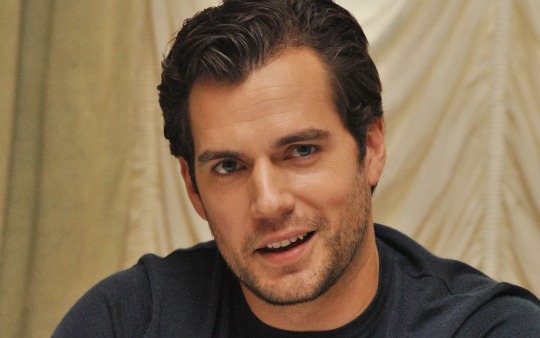
Henry Cavill, the British heartthrob and talented actor, has graced the big screen with his captivating presence in a variety of roles. From donning the iconic red cape as Superman to portraying a suave spy, Cavill has proven his versatility and charisma as an actor. In this article, we delve into Henry Cavill's top 5 best movies of all time, showcasing his ability to captivate audiences and leave a lasting impression.
"Man of Steel" (2013) -

The Birth of a Superhero In Zack Snyder's "Man of Steel," Cavill embodies the legendary character of Superman, giving the iconic superhero a fresh and modern interpretation. Cavill's portrayal of Clark Kent/Kal-El strikes a perfect balance between vulnerability and strength, as he navigates the challenges of accepting his powers and fulfilling his destiny. His charismatic presence and physicality make him a believable and relatable Superman, setting the stage for his continued success in the DC Extended Universe.
"The Man from U.N.C.L.E." (2015) -

Espionage and Style In this stylish and action-packed spy film directed by Guy Ritchie, Cavill stars as Napoleon Solo, a suave CIA agent during the Cold War era. Cavill's undeniable charm and impeccable sense of style make him a perfect fit for the role, as he teams up with a KGB agent to thwart a criminal organization's plans for global destruction. His chemistry with co-star Armie Hammer and ability to deliver both humor and intensity make "The Man from U.N.C.L.E." an underrated gem in Cavill's filmography.
"Mission: Impossible - Fallout" (2018) -
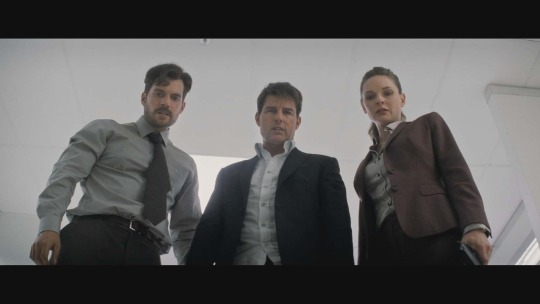
The Perfect Antagonist Henry Cavill's inclusion in the sixth installment of the "Mission: Impossible" franchise took audiences by storm. Playing the role of August Walker, a ruthless CIA agent, Cavill showcases his physicality and intensity in breathtaking action sequences alongside Tom Cruise. His imposing presence and formidable fight scenes add a new dynamic to the film, earning him praise for his portrayal of a charismatic yet dangerous adversary.
"Enola Holmes" (2020) -
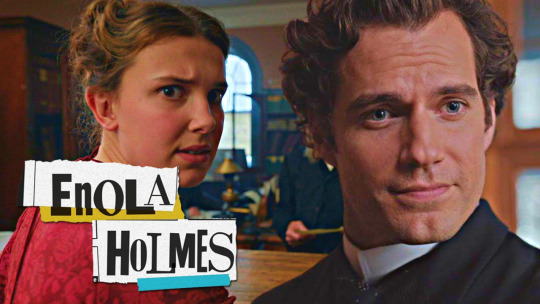
A Family Mystery Unveiled In this Netflix original film, Cavill plays the role of Sherlock Holmes, the legendary detective, and older brother to the titular character, Enola Holmes. Although Cavill's screen time may be limited, he shines in his portrayal of the iconic detective, exuding intelligence and wit. His chemistry with Millie Bobby Brown, who plays Enola Holmes, creates an endearing sibling dynamic that adds depth to the film's engaging mystery narrative.
"The Witcher" (2019 - present) -
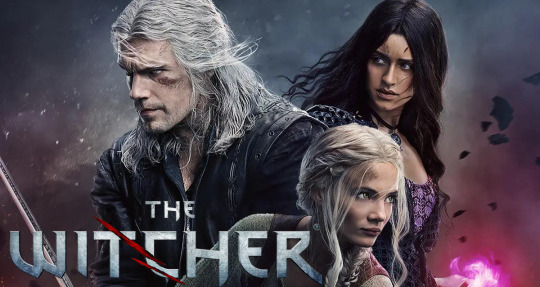
A Fantastical Journey While not a movie, Henry Cavill's portrayal of Geralt of Rivia in the Netflix series "The Witcher" deserves a spot on this list. Based on the beloved book series and video game franchise, Cavill's commitment to the role is evident in his physical transformation and dedication to capturing the essence of Geralt. His brooding performance and undeniable charisma have made him the perfect choice to bring this beloved character to life, cementing his status as a fan-favorite in the fantasy genre.
#Henry Cavill#best movies#Superman#Man of Steel#The Man from U.N.C.L.E.#Mission: Impossible - Fallout#Enola Holmes#The Witcher#actor#superhero#spy#action#adventure#drama#fantasy#Netflix#Sherlock Holmes#Cold War#DC Extended Universe#captivating performances
6 notes
·
View notes
Text
#AngelaBassett regresa como directora de la CIA en #MissionImpossible8 √
Angela Bassett regresa a Misión: Imposible 8 para repetir su papel como la directora de la CIA, Erika Sloane, de Mission: Impossible – Fallout de 2018. Angela Bassett en “Mission: Impossible – Fallout” (2018). / Imagen cortesía Paramount Pictures La trama de la nueva película, de Paramount Pictures y Skydance, sigue siendo un secreto. Recientemente, obtuvo múltiples nominaciones al Oscar y…
0 notes
Text
Blog
Date: 21-10-2023
Weather: Rainy
The search for the T-shirt's owner amidst the bustling campus proved futile due to the multitude of students. Reluctantly, we returned the garment to its box, eventually forgetting about it entirely.
Days passed, and the memory resurfaced unexpectedly. On a stormy morning, I was startled by a jolt of fear. Kenny, tasked with returning Mrs. Royce's keys, crossed paths with me as I carried a load of heavy homework.
Approaching the English Room, we stumbled upon the same mysterious box, now accompanied by a new pen. Intrigued, Kenny ventured inside to investigate, while I cautiously followed, mindful of the school rules against causing disturbances.
Inside the room, a peculiar scene unfolded before us. Wet footprints, likely from large-sized shoes, led to the box amidst scattered broken plastic pieces. An empty cleaning bucket hinted at recent activity by the school janitor.
Examining the evidence, Kenny deduced the presence of a left-handed myopic student, possibly in the upper primary levels, based on the footprints.
The Art Room exuded an eclectic mix of traditional and contemporary paintings, offering a serene ambiance ideal for savoring hot chocolate and gazing at Mountain Bay Park's tranquil view. However, darkness enveloped the space, shrouding even the most visible objects.
Perplexed by the obscure setting, I sought answers from Kenny, who assured me of imminent revelations. As a faint light seeped through the door, a figure stealthily entered, clutching a paper. Suddenly, the room flooded with light, illuminating Janus's shocked expression upon spotting Kenny brandishing the TATA T-shirt.
Janus's swift departure left us bewildered. Kenny, undeterred, embroiled himself in the unfolding mystery, prompting Prefect Ben to intervene. In a bid to forestall trouble, Kenny offered a bribe of Royce chocolate, a rare gesture from him, leading to a tentative truce with the prefect.
In a chaotic science experiment gone wrong, Janus, sporting protective goggles, triggered a colorful chemical reaction. The room filled with pink smoke, prompting Kenny's urgent warning to shield our faces. Amid the commotion, a box of gas masks beckoned, and Eric leaped into action, deftly securing the protective gear. As they readied themselves, Kenny concocted an unconventional mixture of vinegar, dish soap, water, and blue food coloring.
Their makeshift defense plan took a disastrous turn as the concoction exploded, spewing a repulsive mess across the room. I was anticipating the worst, lamented the unfolding calamity. To our dismay, our science teacher, Mr. Frankenstein, loomed ominously at the threshold, his displeasure evident on his imposing visage.
As the smoke cleared and the aftermath of our experiment unfolded, it became apparent that some disasters are worse than exploding volcanoes. In the face of impending consequences, we braced ourselves for the fallout of their misadventure.
After school hours, Mr. Frankenstein released Kenny and us from detention, each harboring mixed emotions. I expressed frustration over his first punishment, while Janus lamented a thwarted plan. As Janus and I shared our grievances, Kenny revealed the true purpose of Janus's clandestine activities: preparing for Miss Lam's upcoming birthday celebration.
Through a series of revelations and apologies, the two of us acknowledged their missteps and sought ways to make amends. Janus, in a bid to rectify the situation, entrusted us with a crucial task: procuring a party popper. Armed with instructions and a time constraint, Kenny and I set off on a time-sensitive mission, realizing the urgency of the situation.
Despite the abrupt departure and lack of gratitude, the friend understood the gravity of their responsibility and rushed to fulfil our task before time ran out, ensuring that we honoured our commitment and rectified our missteps.
1 note
·
View note
Text
Um, um, another fanart to fic...?? Haha... that one was written by @helyiios, and it's just TOO GOOD (I'm gonna probably read it again..)

Here's link:
#my art#ethan hunt#ethan x benji#benji x ethan#mission imposible#mission impossible fallout#mission imposible:ghost protocol#mission impossible 7#mission impossible#mission: impossible#cw: alcohol
45 notes
·
View notes
Text
Marriage under Mao Zedong and marriage under Sun Myung Moon

▲ Ding Ling in the 1930s. She was a famous Chinese author. After the Anti-Rightist Campaign in 1958, Ding was denounced and purged and was sent to exile in Manchuria, to be rehabilitated only in 1979. She died in Beijing in 1986. In 1936, Mao Zedong wrote and dedicated the poem "The Immortal from Linjiang" to her.
See below for Sun Myung Moon’s oath of loyalty, MY PLEDGE, and compare that with the loyalty expected in Mao’s Chinese Communist Party in the 1940s. In the Unification Church there were strict criteria to receive the “Holy Blessing of Marriage” from 1960 to around 1990 when the qualifications required gradually eased. Before that, minimum ages were set, and being active in a full time mission for three years was a requirement, etc. Strict criteria remain for the Japanese to attend. Financial contributions required.
Sun Myung Moon: “I understand communism well.” http://www.tparents.org/Moon-Books/SunMyungMoon-Life/SunMyungMoon-Life-05.htm
_________________________________
from Sinobabble by Edi Obiakpani-Reid, PhD.
https://www.youtube.com/watch?v=F9Y9DJLmn8s
Episode 16: The Communists at Yan'an (pt2): Life after Rectification
This episode will continue the theme of the Communists at Yan'an, switching focus to the lives of Party members and ordinary people under Chinese Communist Party rule.
Split over two parts, we will talk about the development and spread of Communist ideology and Mao Zedong thought, the institution of political campaigns aimed at increasing social cohesion and improving the lives of peasants, and the reaction of the Party to dissent. This week we discuss the fallout from the Rectification movement, and the effect it had on the social lives of political party members as well as ordinary people living in the Communist base area. We will also discuss the evolving role of art and propaganda, alongside the growing sentiment among party members that the collective should be paramount over the individual.
13:45 Finally, speaking about gender equality and sexual freedom, we can’t end this episode without discussing the fallout from the criticism about the treatment of younger cadres that we discussed last week.
China in the early 1940s
Last week we spoke about Ding Ling (丁玲) and Wang Shiwei’s (王实味) writings [Wild Lilies, 1942, Arrow and Target, etc.] on how young cadres felt weary [due to] maltreatment and the lack of opportunity to form meaningful connections – sexism and mistreatment of women and the inability of some cadres to find girlfriends, basically. Unfortunately the attitude towards relationships, particularly love relationships, developed in the opposite way from which many of these idealistic writers had hoped – and instead reflected the new norm of prioritizing the collective revolutionary movement above the self. The CCP imposed harsh restrictions on love and marriage. Basically outright banning the formation of romantic relationships for younger and lower level cadres and putting age restrictions on marriage. Now, marriage was very important in Chinese society. It was not common at all for people to freely fall in love, and have sex out of wedlock, and in the minds of many, traditional values still held sway over their private actions.
Getting married was seen as a major milestone and it meant that people could express their feelings, as well as relieve their desires in a socially appropriate manner. The restrictions were very hard on many young people who expressed their discontent privately in their journals, which showed their anxieties about possibly never finding a life partner. It affected men more than women, however, as many female cadres were more determined to delay marriage as traditional notions still prevailed, and they worried about losing their job and position if they ever had children. Unfortunately, some of them were married off to the older revolutionary cadres in the camps against their will, demonstrating that the CCP’s talk of gender equality was just that, talk. Female members of the party were treated as commodities or resources to be allocated. They were oggled by men who felt they couldn’t have them, and basically dished out to the higher-ups, which was exactly the thing that Wang Shiwei was complaining about in his essay. Funnily enough this actually still took the young men and women in the camp by surprise, because they felt that the revolutionary movement would allow them to marry freely to a partner of their choice, once they fell in love. But never fear, the party helped them to overcome these feelings by educating them to think of their feelings as reactionary bourgeois individualism which was hindering the success of the revolution, especially in light of the Japanese war effort. [The Japanese occupied a significant part of China until 1945. ref Kishi Nobusuke] How could people justify being so selfish when the nation itself was in jeopardy. Now this ideological education didn’t always sit right with the young cadres who still debated on the grounds of compassion and empathy. However, in many cases, this training was successful. There were some instances where love matches never progressed because one member of the pairing was worried about the class status of the other. For example, one woman named Shensha wrote in her diary that, “when I sometimes recall that I loved someone wholeheartedly, and whatever his purpose was he still loved me, I feel sad. I feel sad about the happiness that I saw after so hard and enjoyed for some time.” However, when it came down to her lover, Sha yi, actually proposing to her, she did not hesitate to place his political background above all else. “I cannot marry you, because I do not know you and your past. Being engaged means my life connects to that of a man forever and this is something I must think about carefully. As a party member I should pay attention to my own career and development.”
Other people who did get married were able to frame their match in light of the revolutionary struggle. As one couple wrote on their marriage application, “We fell in love with each other and want to get married. We promise that our work will not be affected by this, and we look forward to the party committee’s approval.”
The party committee replied, “We care about our veteran cadres and approve your application. We hope that you will attach greater importance to the party and make the party interest your top priority.” Some young cadres and party members did their best to deny their emotions altogether in order to prove, mainly to themselves, their loyalty to the party. For example, Jung Zejen, an Eighth Route Army cadre, wrote in his diary about his courtship of a young woman, her rejection of him and the conclusions he ultimately drew from this. “It was the first time in my life that I wrote a letter to a woman to reveal my love for her. It made me happy, but then frustrated. For two nights I could not even sleep.” When he received her rejection, he was tempted to keep pursuing her, but later changed his mind, “If this continues the work of the party and my studies will be affected, and that would be a big mistake. From now on, I will put this problem aside and work hard and study hard. Marriage issues can be easily resolved.” It was undeniable the psychological effects that these policies had on the young party members, in particular the young men who often [felt] a complete hopelessness when it came to the future prospects for happiness, and as we have seen tried to adopt some sort of asexuality. However, even though this experience was disheartening, and even painful for many of the young party members, in the end many people put the organizational goals of the party above their own desires, showing that the major aim of the [CCP] rectification movement to create ideological conformity among the ranks of cadres was ultimately successful.
So that’s it for this episode, and for what ended up being a miniseries on Yan’an.
Sinobabble.com
_________________________________
Loyalty to Sun Myung Moon and the Unification Church
My Pledge (1979)
1. As the center of the cosmos, I will fulfill our Father’s will (purpose of creation) and the responsibility given me (for self-perfection). I will become a dutiful son (or daughter), and a child of goodness to attend our Father forever in the ideal world of creation (by) returning joy and glory to Him. This I pledge.
2. I will take upon myself completely the Will of God to give me the whole creation as my inheritance. He has given me His Word, His personality, and His heart, and is reviving me who had died, making me one with Him and His true child. To do this, our Father has persevered for 6,000 years the sacrificial way of the cross. This I pledge.
3. As a true son (or daughter), I will follow our Father’s pattern and charge bravely forward into the enemy camp until I have judged them completely with the weapons with which He has been defeating the enemy Satan for me throughout the course of history by sowing sweat for earth, tears for man, and blood for heaven, as a servant but with a father’s heart in order to restore His children and the universe, lost to Satan. This I pledge.
4. The individual, family, society, nation, world, and cosmos who are willing to attend our Father, the source of peace, happiness, freedom, and all ideals, will fulfill the ideal world of one heart in one body by restoring their original nature. To do this, I will become a true son (or daughter), returning joy and satisfaction to our Father, and as our Father’s representative, I will transfer to the creation peace, happiness, freedom and all ideals in the world of the heart. This I pledge.
5. I am proud of the one Sovereignty, proud of the one people, proud of the one land, proud of the one language and culture centered upon God, proud of becoming the child of the One True Parent, proud of the family who is to inherit one tradition, proud of being a laborer who is working to establish the one world of the heart.
I will fight with my life.
I will be responsible for accomplishing my duty and mission.
This I pledge and swear.
This I pledge and swear.
This I pledge and swear.
_____________________________________
“Moon Sun-myung saw how Marxism gave his friends a utopian goal, a purpose, a historical role to play…”
“The organization of the Unification Church is so systematic that one thinks of communists.” – Professor Choi
The Moonie Washington P.R. Center, Richard Nixon and Capitol Hill
_____________________________________
Sun Myung Moon
: “So Master knows about Communists very well. And even under Japanese days, in Japan together with the Communists he fought against the Japanese government.” History Of The Unification Church, part 2
Master Speaks December 28, 1971, Washington, D.C.
_____________________________________
Dear Leader's Paper Moon – Sun Myung Moon and North Korea
Unification Church Fund North Korean Missile Development for 450 billion yen
_____________________________________
Nobusuke Kishi was known as a monster, responsible for the deaths of thousands, and as a friend of Sun Myung Moon
Disciplining the Mind – North Korean style
_________________________________
https://en.wikipedia.org/wiki/Wang_Shiwei
https://en.wikipedia.org/wiki/Ding_Ling
In 1943, the rectification movement intensified and many more Communist Party members were purged. Ding Ling came under great pressure and was subject to disciplinary review. In 1945, the "Review Team's Preliminary Conclusions on Ding Ling's Historical Issues" stated: "There are materials to prove that there is no suspicion of Ding being dispatched by the Kuomintang. But whether the serious ideological problems during this period were affected by the softening of the Kuomintang after the arrest, Comrade Ding Ling deeply reflected on [herself]. After the rectification, there has been progress.” Thus she was spared.[13]
_________________________________
1 note
·
View note
Text
LORNE BALFE

BANDA SONORA DE MISSION: IMPOSSIBLE – DEAD RECKONINGPART ONE
Sony Music Masterworks anuncia el lanzamiento de MISSION: IMPOSSIBLE – DEAD RECKONING PART ONE (MUSIC FROM THE MOTION PICTURE) del compositor LORNE BALFE, disponible desde el miércoles 12 de julio, el mismo día en que la película, de Paramount Pictures y Skydance, se estrenó exclusivamente en cines.
Consíguela AQUÍ
Sobre la partitura, Lorne Balfe comenta: "Siempre es emocionante componer para una película con un legado como Misión Imposible. Empecé a componer para este proyecto hace más de 3 años y el objetivo era crear una banda sonora cargada de adrenalina, emocional y estimulante, a la altura de la intensidad palpitante de la película.
Para esta partitura, pudimos grabar en ciudades que son los lugares de rodaje, lo que aportó un nivel diferente de autenticidad y conexión emocional a la música. Grabamos coros en Venecia, el Swiss Drums Corps en Suiza, orquestas en Venecia, Viena y Londres, además de una épica sesión de bongos formada por 35 músicos, que sonó increíble en la sala y fue una bonita oda a Fallout. Esta es, con diferencia, mi partitura más amplia hasta la fecha, con 555 músicos tocando en 5 ciudades. Ha sido un honor trabajar con talentos de talla mundial y un equipo excelente que ha ayudado a cultivar una partitura acabada que es realmente especial".
Christopher McQuarrie, director, guionista y productor de MISIÓN: IMPOSIBLE – DEAD RECKONING PART ONE: "Lo que estás a punto de escuchar representa tres años de prueba y error, experimentación audaz y atención exhaustiva al más mínimo detalle emocional. Es, simplemente, el tipo de puntuación que ya no hacen. Y, sin embargo, Lorne Balfe lo hizo".
ACERCA DE MISSION: IMPOSSIBLE – DEAD RECKONING PRIMERA PARTE
En Misión: Imposible – Cálculo muerto Primera parte, Ethan Hunt (Tom Cruise) y su equipo del FMI se embarcan en su misión más peligrosa hasta el momento: rastrear una nueva arma aterradora que amenaza a toda la humanidad antes de que caiga en las manos equivocadas. Con el control del futuro y el destino del mundo en juego, y las fuerzas oscuras del pasado de Ethan acercándose, comienza una carrera mortal alrededor del mundo. Enfrentado a un enemigo misterioso y todopoderoso, Ethan se ve obligado a considerar que nada puede importar más que su misión, ni siquiera las vidas de aquellos que más le importan.
CONÉCTATE CON MISSION: IMPOSSIBLE – DEAD RECKONING PRIMERA PARTE
SITIO WEB | TRAILER | FACEBOOK | INSTAGRAM | TWITTER
MISIÓN: IMPOSIBLE – DEAD RECKONING PRIMERA PARTE (MÚSICA DE LA PELÍCULA)
LISTA DE CANCIONES –
The Sevastopol
The Phantom
Collision Alarm
A Ghost in the Machine
The Sum of Our Choices
Dead Reckoning Opening Titles
The Entity
Your Mission...
This Is Not a Drill
The Plot Thickens
You Are Dunn
Get Out Now
A Colourful Past
Rush Hour in Rome
Roman Getaway
You're Driving
Hit It
He Calls Himself Gabriel
A Most Probable Next
Run As Far As You Can
You Are Done
Chasing Grace
I Was Hoping It'd Be You
Ponte Dei Conzafelzi
To Be a Ghost
What Is Your Objective
Murder and The Orient Express
Mask of Lies
I Missed the Train
Key Details
The Moment of Truth
Should You Choose to Accept
Leap of Faith
Consequences
You Stop the Train
Chaos on the Line
Countdown
This Was the Plan
Curtain Call
ACERCA DE LORNE BALFE
Lorne Balfe, compositor ganador del GRAMMY y nominado al Emmy y al BAFTA, ha creado música en prácticamente todos los géneros y para todos los medios visuales con proyectos que van desde grandes estudios hasta películas independientes, franquicias de videojuegos, queridas películas animadas, series de televisión aclamadas por la crítica y documentales.
Originario de Inverness, Escocia, el amor de Lorne por la música y la escritura fue evidente desde una edad temprana. La casa de su infancia tenía un estudio de grabación residencial donde grababan artistas como Ozzy Osbourne e Inner Circle, con el último de los cuales trabajó por casualidad para su partitura para Bad Boys for Life.
A los ocho años, Lorne comenzó a escribir y vender sus "jingles" compuestos para anuncios, y a la edad de trece años audicionó para ser percusionista con la Orquesta Sinfónica de Edimburgo, convirtiéndose en su miembro más joven, y viajó por Escocia con ellos profesionalmente. Lorne se hizo evidente que quería convertirse en compositor de cine y en su adolescencia comenzó a escribir cartas a otros compositores con la esperanza de una oportunidad. Fue entonces cuando decidió mudarse a los Estados Unidos, y pronto su excepcional carrera despegó.
Constantemente recibiendo elogios por sus composiciones musicales, recibió elogios de la crítica por su partitura en la película más exitosa de la franquicia Misión Imposible, Mission: Impossible –Fallout (Paramount Pictures) del escritor / director Christopher McQuarrie y también ha compuesto la banda sonora de Mission: Impossible Dead Reckoning Part One, que se estrenará en julio de 2023.
Balfe trabajó en la aclamada por la crítica y nominada al Oscar Top Gun: Maverick (Paramount), que obtuvo 1.488 mil millones en la taquilla mundial. Lorne se desempeñó como productor de partituras y contribuyó a la partitura junto a Hans Zimmer, Harold Faltermeyer y Lady Gaga.
Recientemente compuso la música para el muy elogiado Luther: Fallen Sun (Netflix), la continuación de la querida serie de la BBC, y Dungeons & Dragons: Honor Among Thieves (Paramount) basado en el muy querido y celebrado juego de mesa.
Otros créditos notables incluyen Black Widow (Disney / Marvel), Ambulance (Universal), Jungleland (Paramount), The Lego Batman Movie (Warner Bros) y la película nominada al Oscar The Florida Project ( A24). El próximo trabajo de Lorne se escuchará en Argylle dirigida por Matthew Vaughn.
Además de su trabajo con Christopher McQuarrie, Lorne ha trabajado con muchos de los directores más prestigiosos de la industria, incluidos Christopher Nolan, Ron Howard, Michael Bay, Cate Shortland, Ang Lee, Christophe Waltz, Jerry Bruckheimer, Sean Baker y Chris McKay.
Sony Music Masterworks se compone de los sellos Masterworks, Sony Classical, Milan Records, XXIM Records y Masterworks Broadway.
0 notes
Text
“During the Cold War, the CIA concluded, using Soviet statistics, that the Soviet Union had the world’s second-largest economy whose size and production capabilities rivaled those of the United States. But when communism collapsed, Russia’s economy turned out to be not much larger than Portugal’s.
Statistics in contemporary Russia are equally deceptive. While the government says that it has rerouted all of its oil exports and much of its natural gas from Europe to Asia, this doesn’t take into account the vast discounts at which it now sells its resources.
As many as a million young people have left Russia since the start of the war, and half a million others have been sent to fight the war. Just these two factors could not help but inflict severe damage on the Russian economy, giving the lie to official economic statistics.
(…)
BUT THE best way to see how Russia falsifies its economic data is in its inflation statistics. Officially, inflation peaked last April at around 18% and came down in 2022. It stood at 11% in February 2023. This is not much worse than before the start of the war, when inflation measured around 9%.
(…)
As a result, even though officially Russia’s imports fell by only around 12% during 2022, their physical quantities declined by a far larger margin. Meanwhile, domestic supply has been reduced by the departure of hundreds of foreign companies. Local production also declined since it relies on foreign components.
The supply shock in the Russian market was exacerbated on the demand side by government purchases of food and clothing. Additionally, Bloomberg has found that the incomes of Russia’s poorest households were boosted by payments to soldiers fighting in Ukraine and their families. As many employees were drafted or fled the draft abroad, labor shortages developed forcing employers to offer higher wages.
Finally, the corruption premium that has always been high in Russia inevitably went up because of wartime uncertainty. Taken together, all this suggests that Russia’s consumer prices rose much faster in reality than in official statistics – or at least by 30%. It is actually a conservative estimate.
According to Romir, an independent research group, inflation in the staples category, the so-called fast-moving consumer goods, measured 48% last year. Ingredients for borscht, another measure of prices of staples in Russia, rocketed by 56%.
Meanwhile, inflation in the Baltic states and Poland measured close to 20% and in Hungary around 25% in 2022. It is unlikely that Russia, which was fighting a war and straining under strict sanctions, could have achieved a lower rate of inflation.”
“Ms. Nabiullina, governor of the Russian Central Bank, is among the key players in Moscow’s efforts to prevent Western sanctions over the Ukraine invasion from causing an economic meltdown. An ally of Mr. Putin for two decades, she is the primary official responsible for stabilizing the ruble and combating inflation—tasks the Kremlin sees as essential in shielding Russia’s population from the fallout of sanctions.
She has succeeded, to some extent. A flurry of emergency measures Ms. Nabiullina enacted since the invasion helped reverse a sharp devaluation of the ruble, which is roughly back to its prewar level in dollar terms. She was able to dial back an earlier emergency interest-rate hike on Friday, lowering a key rate to 17% from 20% in a sign savers were no longer pulling cash from the banking system. But economists say the ruble’s recovery was a hollow victory, as it is now subject to myriad restrictions that limit its usefulness for many transactions.
Effectively, Ms. Nabiullina threw up new barriers between her country and global trade flows, deepening Russia’s isolation on top of what sanctions caused. She restricted money transfers abroad. She hamstrung Russian businesses that did business with foreign customers by forcing them to convert 80% of their hard-currency earnings into rubles.
(…)
Her U-turn replaced years of liberal policies with a command-and-control approach. Russia had abandoned capital controls in 2006, and Ms. Nabiullina herself oversaw the ruble’s transition to becoming a free-floating currency in 2014.
“For years, the central bank did everything it could to help Russia integrate further into the world economy,” said Andrey Movchan, a former Russian banking executive who now lives in London and leads an international asset-management business. “Then suddenly on Feb. 24, it had to do the complete opposite.”
(…)
Known in years past for her success in curbing inflation, Ms. Nabiullina now faces surging prices that have hit Russians in the pocketbook. Annualized inflation rose to 16.7% in March, its highest rate since 2015, according to data from the country’s state statistics agency.
(…)
Ms. Nabiullina’s authority is broader than those of many of her Western counterparts, because the Russian Central Bank regulates the country’s financial markets, insurance companies and investment funds as well as overseeing its banks and setting monetary policy. Some of her emergency measures fulfilled Kremlin goals of retaliating against U.S. and European sanctions. In one such move, the central bank blocked foreign investors from selling tens of billions of dollars’ worth of Russian stocks.
(…)
The Ukraine invasion blindsided her, and she initially tried to resign over the war, The Wall Street Journal reported last month, citing people familiar with the matter. The central bank denied that she tried to quit, a resignation attempt earlier reported by Bloomberg. Mr. Putin himself rebuffed rumors of her departure by nominating Ms. Nabiullina for a third term as central-bank chief—a vote of confidence that ties her even more closely to his rule.
(…)
In her public appearances since the war began, Ms. Nabiullina has stopped taking questions from reporters. Observers have detected signs of a bleak new mood in her attire. Known for sending messages with brooches—such as one resembling a hawk at a March 2021 press conference announcing an interest-rate hike—Ms. Nabiullina has stuck to unadorned outfits of black or dark gray since the invasion.
(…)
Domestic critics of Ms. Nabiullina have attacked her for failing to stop the asset freeze. Before the war, Russia’s central bank amassed a war chest of $630 billion to ensure it could ride out any crises. Around $300 billion of that was frozen, according to Russia’s finance minister. Even though the central bank took steps to diversify its reserves into non-Western assets such as gold and the Chinese yuan, it left many more in dollars, euros and the Japanese yen and parked them in financial institutions outside Russia. That made it easy to transact with the reserves on global markets—but made them susceptible to sanctions.
“She was storing our money in the pockets of our enemies,” Mikhail Delyagin, a member of the Russian parliament, said in an interview posted March 13 on his website. He didn’t respond to a request for comment.
People who know Ms. Nabiullina praise her professionalism and call her incorruptible, something that antigraft groups say is an unusual quality among Russian government officials. An opera aficionado, she is married to a fellow economist who was the longtime head of a prestigious Moscow university. Financial disclosures have listed her car as a Jaguar S-Type. A person close to the central bank said Ms. Nabiullina acquired the car more than 20 years ago.
(…)
Ms. Nabiullina was born in Ufa, an industrial city some 700 miles east of Moscow. Raised in a working-class family from the Tatar ethnic minority, she studied economics at Moscow State University—perhaps the country’s top institution of higher learning—in the late Soviet era, when Marxist-Leninist ideology still dominated the curriculum. Ms. Nabiullina was among the economics students most proficient in Karl Marx, according to a former classmate, Sergei Aleksashenko.
“She learned ‘Das Kapital’ by pages,” recalled Mr. Aleksashenko, who served as a deputy finance minister and deputy central bank governor during the 1990s and now lives in the U.S. where he is a blogger and vocal critic of Mr. Putin. “If she was asked what Marx said, she could repeat, Marx said this.”
Ms. Nabiullina pivoted to free-market economics with the fall of the U.S.S.R. She spent much of the 1990s working in a big-business trade group and the Russian economics ministry, where she was seen as a protégé of Yevgeny Yasin, a prominent liberal reformer. Ms. Nabiullina entered Mr. Putin’s circle in 1999, when she joined a think tank that crafted his economic program.
Over the past two decades she has been a fixture of Mr. Putin’s team, with roles that included leading the economics ministry, advising the president on policy and—since 2013—running the central bank.
Ms. Nabiullina won the Russian leader’s trust because she lacks her own political ambitions and is a stalwart inflation hawk, said Alexei Makarkin, an analyst with the Center for Political Technologies, a Moscow-based think tank. “The president’s views that the ruble can’t be allowed to fall, and hyperinflation can’t be allowed, go back to the 1990s,” Mr. Makarkin said. “And he listens to the people who tell him this.”
(…)
Some early members of Mr. Putin’s economic team broke with the Russian leader during the 2000s and 2010s, upset by his shift toward authoritarianism. But not Ms. Nabiullina, who remained a team player.
“She demonstrates her loyalty to Putin every minute, every second,” said Mr. Aleksashenko, the former deputy finance minister. “You cannot stay in Putin’s team for 20 years if you’re not loyal or have contradictory ideas, if you say, ‘No Mr. Putin, you are wrong.’ It’s a personal choice—are you ready to stay with the dictator?””
1 note
·
View note
Text
New Year, New Character 2: Day 19
Cassandra, Weapon of Justice, Fallout: the Roleplaying Game Cassandra grew up in the wastes and learnt very quickly that there is no law but that you can impose. For a time she considered joined a raider gang for the protection in numbers, but after witnessing the aftermaths of their attacks too many times she realises she could not live like that. So she took to mercenary work for a while. And then she met a Regulator. There are few codes of law in the wastes, and those that exist are easy enough to evade by running. The Regulators do not enforce laws, but they seek justice and try to settle disputes. Sometimes by talking, sometimes by violence. This appealed to Cassandra, though she would be the first to admit she prefers the latter. A while back she did manage to convince one raider to give up their gang and help her. The big guy, Rhodey, has been a boon in her missions, even if he does somehow keep loosing the big guns he is so fond of. The two of them were chasing after slavers that been raiding a settlement, getting into a a firefight through the ruins of a school, when they encountered Kayleigh and her companions. After realising they were shooting at the wrong people, they teamed up to finish off the raiders.
Origin: Survivor
Level: 1
Luck Points: 7
Strength: 5
Perception: 5
Endurance: 6
Charisma: 5
Intelligence: 5
Agility: 7
Luck: 7
Athletics (Str): 2
Barter (Cha): 2
Big Guns (End):
Energy Weapons (Per):
Explosives (Per):
Lockpick (Per): 2
Medicine (Int): 2
Melee Weapons (Str): 3(T)
Pilot (Per): 1
Repair (Int): 1
Science (Int):
Small Guns (Agi):
Sneak (Agi): 3(T)
Speech (Cha): 1
Survival (End): 3(T)
Throwing (Agi):
Unarmed (Str):
Perks: Scrounger, Toughness
Traits: Small Frame, additional perk
Carry Weight: 175lbs
Damage Resistance: Physical 1 Energy 0 Radiation 0 Poison 0
Defense: 1
Initiative: 12
HP: 13
Melee Damage: +0
Equipment: Mercenary
Tough clothing (Resist Phys. 1, Energy 1, all locations but head)
Leather armour chest piece (Resist Phys. 1, Energy 2, Torso)
Machete
10mm automatic pistol with 10+5d rounds of ammunition
Advert for job worth 50 caps
15 caps
Tagged Skill equipment
Baseball bat
One dose of Calmex
2 purified water, 1 iguana on a stick
#new year new character#character creation challenge#character creation#fallout#fallout the roleplaying game#fallout: the roleplaying game#modiphius#rpg#rpgs#role playing games#Role Playing Game#roleplaying game#roleplaying games
0 notes